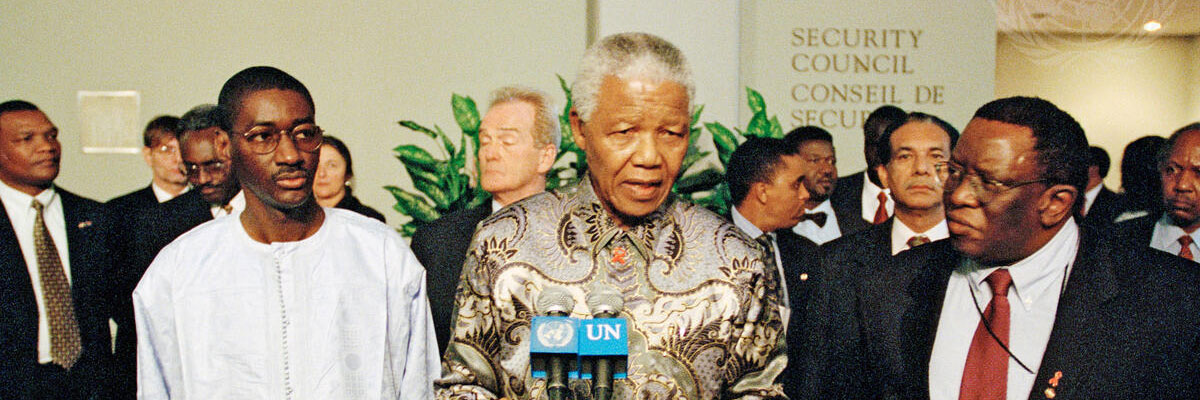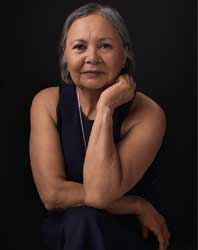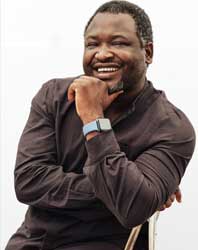As long as poverty, injustice and gross inequality persist in our world, none of us can truly rest.

- Nelson Mandela
2025
Nelson Mandela Prize
The United Nations Nelson Rolihlahla Mandela Prize aims to recognize the achievements of those who dedicated their lives to the service of humanity as guided by the purposes and principles of the UN, while honouring and paying homage to Mandela's extraordinary life and legacy of reconciliation, political transition and social transformation. It is awarded every five years and was first awarded in 2015.
The 2025 Prize is awarded to Mrs. Brenda Reynolds of Saulteaux First Nation and Canada, and Mr. Kennedy Odede of Kenya, selected by the UN Selection Committee which was advised by a group of eminent persons.
The laureates will be recognized at the annual commemoration by the General Assembly of Nelson Mandela International Day on 18 July 2025, which is Nelson Mandela International Day.
- Press Release — United Nations Selects Indigenous Social Worker from Canada, Kenyan Social Entrepreneur to be awarded 2025 UN Mandela Prize
- Statement by the President of the General Assembly and Chair of the Nelson Mandela Prize Selection Committee
- Press Release — United Nations Calls for Nelson Rolihlahla Mandela Prize Nominations
- UN News story — UN Awards 2025 Mandela Prize to Brenda Reynolds and Kennedy Odede
2025 Laureates
Mrs. Brenda Reynolds
Saulteaux First Nation, Canada
Brenda Reynolds, a Status Treaty member of the Fishing Lake Saulteaux First Nation, Saskatchewan, brings a lifetime of lived experience, advocacy, and professional leadership to the forefront of Indigenous health, mental wellness, and reconciliation efforts in Canada and internationally. Her personal journey — from impacts of cultural genocide to a nationally recognized leader in trauma-informed care — has shaped her deep commitment to addressing the intergenerational impacts of the Indian Residential School (IRS) system and government assimilation policies.
A social worker, Brenda has varied work experiences with First Nation community work, provincial and federal governments. She played a pivotal role in the largest to date court-ordered Indian Residential Schools Settlement Agreement. Her leadership helped establish the Indian Residential School Resolution Health Support Program — a national, culturally grounded mental health initiative. The Resolution Health Support workers became the first trauma responders to the Indian residential school survivors, their families and Canadians. This program is still funded and active today, noted for its contributions to healing and post-traumatic growth.
In 1988, Brenda worked and supported 17 teen girls who disclosed sexual abuse at Gordon's Residential School by a staff member. This was the first court case of sexual abuse by an Indian residential school staff member in Saskatchewan. In the final report of the Truth and Reconciliation Commission later stated that the Gordon's Indian Residential School has become known as one of the "worst run schools in the entire residential school system".
Brenda later worked as a special advisor to the Truth and Reconciliation Commission (TRC), where she coordinated survivor support at national events and advised Commissioners on trauma response. Her ability to mediate, de-escalate, and lead with compassion earned the praise of law enforcement and event organizers alike.
Brenda's expertise is sought globally. In 2023, she was invited by the United Nations High Commissioner for Human Rights and the European Union to share her insights on trauma and cultural genocide. Her doctoral studies in clinical psychology (ABD) focus on trauma interventions for cultural genocide, further contributing to global academic understanding.
Brenda continues to provide consultation and training across Canada and internationally, bringing clarity and compassion to complex conversations on trauma, reconciliation, and healing. She currently resides in Alberta, Canada.
Mr. Kennedy Odede
Kenya
Kennedy Odede is the Founder and Chief Executive Officer at SHOFCO, Kenya's largest grassroots movement, and one of Africa's most esteemed social entrepreneurs and community organizers. He is best known for his award-winning work to transform the lives of slum residents and direct resources and decision-making power to local community organizations.
Kennedy became a street-child at the age of 10 and lived in the Kibera Slum for 23 years. During this time, he experienced extreme poverty first hand, but also witnessed the palpable hope that persists in slums and recognized that people sought something different for themselves, their families and their communities. Through earning $1 for 10 hours of work at a factory, Kennedy managed to save 20 cents to buy a soccer ball, which he used to bring community members together, and, with that, SHOFCO was born.
Today, SHOFCO impacts more than 2.4 million people each year in Kenya by organizing and strengthening community groups across 68 sites and fostering partnerships to deliver essential services to support them.
In 2024, Kennedy was named one of TIME's 100 Most Influential People. In addition, he has been appointed by administrator Samantha Power to the USAID Advisory Committee and has served as a Fellow with Humanity in Action, Aspen Institute and Echoing Green. Kennedy is also a Young Global Leader at the World Economic Forum, an Obama Foundation Africa Leader and a member of the Clinton Global Initiative. Prior to this, he served on the United Nations International Commission for Financing of Global Education Opportunities, and on the Board of Directors of Wesleyan University.
Kennedy is the co-author of the New York Times Best Seller, Find Me Unafraid: Love, Loss and Hope in an African Slum, which he wrote with his wife, Jessica Posner Odede. His work has been featured by President Bill Clinton, and on multiple occasions by Nicholas Kristof in The New York Times.
Kennedy holds a Bachelor's degree in Sociology from Wesleyan University.
In accordance with Article 4 (1) of the Statute, the Nelson Rolihlahla Mandela Prize recipients are selected by the 2025 selection Committee composed as follows:
- Chair of the Committee
H.E. Mr. Philemon Yang, President of United Nations General Assembly's seventy-ninth session; - African Group
H.E. Mr. Osama Mahmoud Abdelkhalek Mahmoud, Permanent Representative of Egypt to the United Nations; - Asia-Pacific Group
H.E. Mr. Jamal Fares Alrowaiei, Permanent Representative of Bahrain to the United Nations; - Eastern European Group
H.E. Mr. Krzysztof Maria Szczerski, Permanent Representative of Poland to the United Nations; - Latin American and Caribbean Group
H.E.Ms. Mutryce Agatha Williams, Permanent Representative of Saint Kitts and Nevis to the United Nations; - Western European Group and other States
H.E. Ms. Elina Kalkku, Permanent Representative of Finland to the United Nations; - Ex-officio member of the Committee
H.E. Ms. Mathu Joyini, Permanent Representative of South Africa to the United Nations.
In accordance with Article 4 (2) of the Statute, the following three eminent individuals have been selected to serve as honorary members of the Committee in an advisory capacity:
- H.E. Ms. Marcella A. Liburd, Governor General of the Federation of St. Kitts and Nevis;
- H.E. Ms. Tarja Halonen, former President of the Republic of Finland;
- H.E. Mr. Mohamed Mostafa ElBaradei, Nobel Laureate, former Vice President of Egypt and Director-General of the International Atomic Energy Agency (IAEA);
- Ms. Elżbieta Mikos-Skuza, senior lecturer at the Faculty of Law, University of Warsaw, Poland.
The UN Department of Global Communications has been designated to serve as the secretariat of the Committee.
More on the selection process >>


